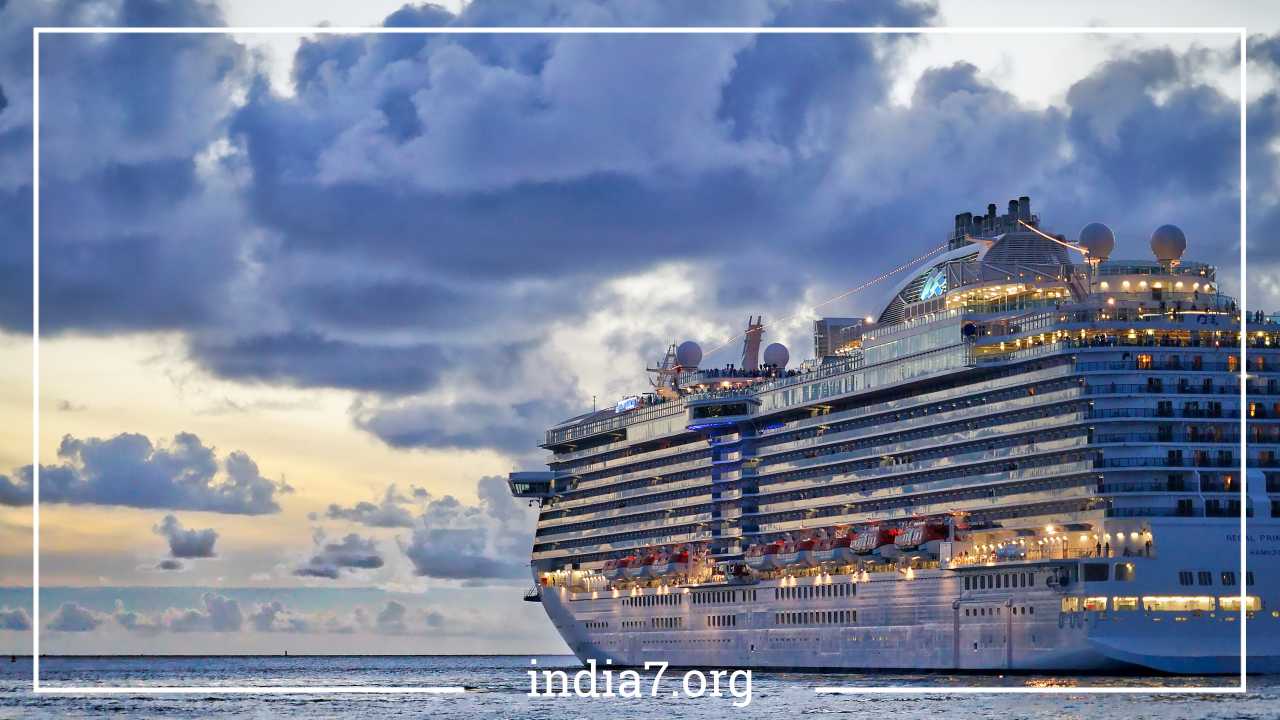Travel Tips for Portugal: A Comprehensive Guide

Portugal
Are you planning a trip to Europe and considering Portugal as your destination? Portugal, with its rich history, stunning landscapes, and vibrant culture, is a fantastic choice for travelers. Whether you’re interested in exploring ancient castles, relaxing on beautiful beaches, or savoring delicious cuisine, Portugal has something to offer every type of traveler. In this comprehensive guide, we will provide you with an in-depth look at everything you need to know before embarking on your Portuguese adventure.
About the Country:
Portugal’s history is a tapestry of triumphs and challenges. In the 15th and 16th centuries, Portugal was a dominant world power, known for its exploration and maritime prowess. However, the country faced significant setbacks, including a devastating earthquake in 1755, Napoleon’s invasion, and Brazil’s declaration of independence. Today, Portugal stands as a resilient nation with a deep-rooted history that permeates its culture.
Geographically, Portugal is located in Southwestern Europe on the Iberian Peninsula. It shares its borders with Spain to the north and east and is surrounded by the Atlantic Ocean on both the west and south coasts. This coastal positioning provides Portugal with a diverse range of landscapes, from rugged cliffs to pristine beaches.
Climate:
Portugal’s climate varies across regions but can be broadly categorized into two main types: oceanic in the north and Mediterranean in the south. It is one of Europe’s warmest countries, with average temperatures of 13°C (55°F) in the north and 18°C (64°F) in the south. Summers are characterized by hot and dry weather, while winters tend to be cold and wet. Spring and autumn are considered the best seasons to visit Portugal, as the weather is mild and pleasant during these times.
Population & Languages:
Portugal is home to a population of approximately 10.6 million people. Portuguese is the official language spoken throughout the country. However, in some parts of Portugal, particularly in the northeast, Mirandese is recognized as a second official language. While English is widely spoken in tourist areas, learning a few basic Portuguese phrases can enhance your travel experience and help you connect with locals.
Local Customs:
Understanding local customs and etiquette is essential for any traveler. In Portugal, casual dressing is generally acceptable, but it’s important to avoid wearing beachwear in towns and cities unless you are at the beach or pool. Smoking is allowed after meals in restaurants, but it is prohibited in enclosed public spaces such as theaters, cinemas, and buses. Tipping is customary, with 10 to 15 percent in restaurants and hotels and 10 percent for taxi services. However, it’s always a good practice to check your bill, as some restaurants may include a service charge.
Attractions:
Portugal offers a plethora of attractions that cater to a wide range of interests. Here are some must-visit places and sites:
- Castelo de Sao Jorge (Castle of St. George): Located in Lisbon, this historic castle offers breathtaking views of the city and the Tagus River. Explore its ancient walls and immerse yourself in Portuguese history.
- Alfama: As the oldest part of Lisbon, Alfama boasts narrow winding streets, colorful buildings, and a rich Moorish heritage. Stroll through its charming alleys and discover hidden gems.
- Sé (Cathedral): The Sé is Lisbon’s oldest church and holds significant historical and religious importance. Its Gothic architecture and serene atmosphere make it a peaceful place to visit.
- Calouste Gulbenkian Foundation Museum: This museum in Lisbon houses an impressive collection of art and artifacts from various cultures and time periods. It’s a cultural gem for art enthusiasts.
- The Bairro Alto: Dating back to 1513, the Bairro Alto district in Lisbon is known for its historic significance and vibrant nightlife. Explore its streets during the day and enjoy the lively atmosphere at night.
- Monument to the Discoveries: Situated on the riverbank in the Belem district of Lisbon, this monument commemorates Portugal’s Age of Discovery. It’s a striking architectural masterpiece that offers panoramic views of the river.
- Tower of Belem: A UNESCO World Heritage Site, the Tower of Belem is a symbol of Portugal’s maritime history. Explore this iconic fortress and learn about its role in maritime exploration.
- Parque das Nacoes: Located in Lisbon, this modern waterfront park offers a contrast to the city’s historic neighborhoods. It’s a hub of entertainment, shopping, and cultural activities.
- Fatima: Fatima is a significant pilgrimage site for Catholics. Visit the Sanctuary of Our Lady of Fatima, where millions of pilgrims gather each year to pay their respects.
- Museu Nacional de Soares dos Reis: Situated in Porto, this museum is dedicated to Soares dos Reis, a renowned sculptor born and bred in Porto. It showcases his masterpieces and offers insights into Portuguese art.
- Igreja de Sao Francisco: This Gothic church in Porto is known for its Baroque interior, featuring intricate woodwork and gilded altarpieces. It’s a captivating blend of architectural styles.
- Solar Vinho do Porto: If you’re a wine enthusiast, don’t miss the opportunity to explore the world of Port wine. This cellar in Porto offers wine tastings and insights into the production process.
- Vila Nova de Gaia: Located across the river from Porto, Vila Nova de Gaia is famous for its wine cellars and offers stunning views of Porto’s historic skyline.
- Frederico de Freitas Museum: Situated in Funchal, Madeira, this museum showcases an eclectic collection of art and antiques, providing a glimpse into the island’s history.
- Sao Vicente Caves: Explore the underground lava caves in Sao Vicente, Madeira, and learn about the geological history of the island.
- Cable Car: Enjoy a scenic ride on a cable car in Madeira, offering panoramic views of the island’s lush landscapes.
- Cathedral: Many Portuguese cities, including Lisbon, Porto, and Evora, feature impressive cathedrals with unique architectural styles and historical significance.
- Whale Museum: If you’re interested in marine life, visit the Whale Museum in Madeira to learn about the island’s whaling history.
- Porto Santo: This picturesque island is known for its stunning beaches, making it a perfect getaway from the mainland.
- Setubal: Explore the charming town of Setubal, known for its seafood, beautiful beaches, and the nearby Arrabida Natural Park.
- Coimbra: Home to one of Europe’s oldest universities, Coimbra boasts historic architecture, scenic viewpoints, and a vibrant student culture.
- Coimbra University: Discover the rich history of Coimbra University, which has been a center of learning for centuries. Visit the Joanina Library, a Baroque masterpiece.
- Guimaraes: Often called the “Birthplace of Portugal,” Guimaraes is a city steeped in history. Explore its well-preserved medieval center and visit the impressive Guimaraes Castle.
- Guimaraes Church and Palace: Admire the architecture of the Church of Sao Miguel and the Palace of the Dukes of Braganza, both significant historical landmarks.
- Braganca: Located in the northeast of Portugal, Braganca is known for its medieval castle and picturesque old town.
Travel Options:
Getting to Portugal is relatively easy, with multiple transportation options:
- By Air: Portugal’s national airline, TAP Air Portugal (TP), offers direct flights to Portugal from numerous countries, including Canada, France, Spain, the UK, and the USA. Other airlines, such as Portugalia Airlines (NI), also operate flights within Europe. The largest airport in Portugal is Lisbon International Airport, located approximately 4.5 miles north of Lisbon city center.
- By Sea: Portugal has several major ports that serve international passengers, including Lisbon, Leixes (Oporto), Funchal (Madeira), and Portimão (Algarve). These ports are frequented by various cruise lines, including Cunard, Italia, Linea C, Olympia, P&O, and Union Cas.
- By Rail: If you’re traveling from the UK, a convenient way to reach Portugal is by taking the Eurostar train to Paris and then continuing your journey to Portugal on the Sud-Express train.
- By Road: Portugal shares its only land border with Spain. Major border crossings are typically open most of the time, allowing for easy road travel between the two countries.
Duty-Free Items:
Understanding duty-free allowances is important when traveling to Portugal from non-European Union countries. Here are the duty-free limits for various items:
- Tobacco Products: You can bring up to 200 cigarettes, 100 cigarillos, 50 cigars, or 250 grams of smoking tobacco when arriving from non-European Union countries.
- Alcoholic Beverages: For spirits with an alcohol content greater than 22%, you’re allowed 1 liter. Alternatively, you can bring 2 liters of spirits, aperitifs made of wine with less than 22% alcohol, sparkling wines, liqueurs, or a proportional mix. In addition, you can carry 2 liters of wine.
- Perfume and Eau de Toilette: You’re allowed up to 50 grams of perfume and 250 milliliters of eau de toilette.
- Gifts: You can bring gifts with a total value of up to €175.
- Coffee and Tea: Travelers can carry 500 grams of coffee, 100 grams of tea, or 40 grams of tea extract.
- Medicines: You can bring medicines for personal use.
Prohibited Items:
When entering Portugal, there are certain items that are prohibited. Be sure to avoid bringing the following:
- Birds and poultry arriving from countries infected with Avian influenza.
- Un-canned goods, meat, or dairy products, as there may be restrictions or sanitary requirements.
- Narcotics, firearms, ammunition, and weapons, which are subject to strict regulations.
- Eggs, plants, and endangered species, as these may require special permits or inspections.
- Fireworks, which may be subject to safety regulations and restrictions.
- Alcoholic beverages containing more than sixty per cent alcohol, which may be subject to customs regulations and restrictions.
Final Thoughts:
Portugal, with its rich history, diverse landscapes, and welcoming culture, is a destination that has something for every traveler. From the historic streets of Lisbon to the vineyards of Porto, and from the beautiful beaches of the Algarve to the rugged cliffs of Madeira, Portugal offers a wide range of experiences waiting to be explored.
As you plan your trip to Portugal, remember to consider the best time to visit, learn a few Portuguese phrases, and familiarize yourself with local customs. Whether you’re interested in exploring ancient castles, savoring delicious cuisine, or simply relaxing on the beach, Portugal has the ingredients for a memorable and fulfilling travel experience.
So, pack your bags, immerse yourself in Portugal’s rich culture, and get ready to create lasting memories in this enchanting European destination. Portugal awaits, and it’s ready to charm you with its beauty, history, and hospitality. Safe travels!



